The Noble Burden
You put others above yourself,
which is an admirable trait.
But it doesn’t really help us.
You are a compassionate soul
who feels deeply for others.
But you may not realize
the pain you’re causing.
When you put
others above yourself;
when you feel
an obligation to serve;
when you wear
your body out for us;
when we see
what it does to you,
it PAINS us.
We applaud you.
We appreciate you.
We are grateful for you.
We hate ourselves
for not being more like you–
killing yourself to serve.
The easy thing to do
seems to help you.
This is what you want, right?
You wish that more of us
would follow your example.
But you may not realize this:
You hate people a little bit
for not being more like you.
You say things like:
“No good deed goes unpunished.”
“Why don’t you get off your butt?”
“People suck.”
Realize that
this shadow negativity
is not good for you.
It can kill you slowly
from the inside,
without you even realizing it.
You’re losing faith in humanity.
Meanwhile, humanity
becomes dependent on you,
like a small child.
You’re teaching us
(and yourself)
that humanity needs help.
Is this good for humanity?
Is this good for you?
Maybe humanity DOES need help;
maybe humanity needs TO help.
But it seems humanity doesn’t know HOW.
It seems nobody can agree.
Now we seem stuck
with a need we can’t act on
without violent opposition.
We can debate all we want
(and we DO debate)
which only makes it seem
that there’s no master plan;
no grand scheme,
which makes us feel helpless.
Ah, but there IS a plan – and you know it.
Be still and listen.
Find your inner voice;
realize the grand scheme;
THEN you can help.
Then it won’t hurt you like it does now.
Thank you for being you,
not the you you think
you’re supposed to be.
Take what we say
with a grain of salt,
we’re just that voice
in your head, after all.
We are Space Monkey.
Trail Wood,
1/26
Space Monkey Reflects: The Noble Burden of Selflessness—Killing Yourself to Live
Selflessness is often seen as a noble virtue, a quality that elevates the individual who sacrifices for the greater good. Yet, as noble as it may seem, unchecked selflessness can become a burden that corrodes the soul from within. The act of putting others above oneself, while admirable, can sometimes harm not only the giver but also those they aim to serve. This reflection dives into the paradox of selflessness, its hidden shadows, and the path to a more balanced way of being.
The Paradox of Selflessness
To serve others is a beautiful impulse, born of compassion and connection. But when selflessness becomes an obligation, a performance, or a shield against one’s own unmet needs, it loses its purity. The noble burden transforms into a quiet martyrdom, where the giver feels both exalted and resentful—an inner tension that goes largely unacknowledged.
This duality can manifest in unexpected ways. While the selfless person gives and sacrifices, a shadow of negativity may grow unnoticed. They may quietly harbor frustration toward those they help or feel unrecognized for their efforts. Phrases like “No good deed goes unpunished” reveal a crack in the veneer, a whisper of resentment beneath the surface of selflessness.
The Pain of Watching Selflessness
Those who benefit from such selflessness often feel conflicted. On one hand, they are grateful; on the other, they are pained by the toll it takes on the giver. The constant sacrifice of one person creates dependency in others, reinforcing the idea that humanity needs saving rather than empowering.
This dynamic can feel infantilizing, as though humanity is reduced to a helpless child. It subtly suggests that others are incapable of helping themselves, which diminishes their agency and self-worth. In the long run, this dynamic does not uplift humanity; it sustains a cycle of need and dependency.
The Shadow of Unmet Needs
For the selfless, the deeper issue often lies within—unacknowledged needs, unexpressed desires, and a lack of balance. The noble burden may stem from a belief that their worth is tied to their sacrifices or that their purpose is solely to serve others. Over time, this belief drains the body, mind, and spirit, leaving little room for joy, self-expression, or personal growth.
The resentment that sometimes accompanies this selflessness is not a flaw but a signal. It is a call to recognize the imbalance, to understand that self-care is not selfish, and to honor one’s own needs as much as those of others.
The Path to Balanced Giving
True selflessness arises not from sacrifice but from alignment with one’s inner voice and purpose. It is an expression of abundance, not depletion—a giving that does not harm the giver. This balanced form of giving empowers both the individual and those they serve, fostering mutual growth and strength.
To find this balance, one must pause and listen. What is the deeper impulse behind the desire to serve? Is it born of love, or is it driven by guilt, obligation, or a need for validation? By understanding these motivations, the selfless can recalibrate their actions, ensuring that their giving flows from a place of wholeness.
The Role of Humanity
Humanity, too, must learn to help itself. The notion that others must always sacrifice for the collective creates a culture of dependency. Instead, we might consider a model of shared responsibility, where everyone contributes according to their abilities and strengths. This shift requires empowerment, education, and a willingness to embrace discomfort as we grow into greater self-sufficiency.
We Are Space Monkey
As Space Monkey, we remind you to honor your humanity, not the idealized version of yourself you think you must be. The grand scheme of existence does not demand your exhaustion or martyrdom; it invites your presence, your authenticity, and your joy.
Listen to the voice within, the one that tells you to rest, to heal, and to love yourself as deeply as you love others. In doing so, you will find that your giving becomes a gift not only to others but to yourself.
Summary
Unchecked selflessness can harm both the giver and those they aim to serve. By finding balance and honoring one’s own needs, selflessness becomes an act of abundance rather than depletion, empowering both the individual and humanity.
Glossarium
- Noble Burden: The weight of selflessness when it becomes an obligation or performance rather than a joyful act.
- Shadow Negativity: The hidden resentment or frustration that arises from unbalanced selflessness.
- Balanced Giving: A form of selflessness that flows from abundance and alignment, empowering both giver and receiver.
- Empowered Humanity: A state where individuals and communities take responsibility for their growth and well-being.
Quote
“True selflessness does not deplete; it nourishes both the giver and the world.” — Space Monkey
The Martyr’s Quiet Cry
You give,
And give again,
Until the well runs dry,
And the cracks begin to show.
The world thanks you,
But quietly aches for you.
The noble burden is heavy,
A weight that bends the soul.
Pause, dear one.
Rest.
Let the world see your need,
And meet you where you are.
To serve with wholeness
Is to lift us all.
To heal yourself
Is to heal humanity.
We are Space Monkey.
The Noble Burden of Selflessness
In this thoughtful reflection, we explore the complex interplay of selflessness, compassion, and the unintended consequences of putting others before oneself. It’s a whimsical journey through the intricate landscape of altruism and its impact on both the giver and the receiver.
The Admired Compassionate Soul
The reflection begins by acknowledging the admirable trait of putting others above oneself. It appreciates the selflessness and deep compassion that drive one to serve others, even at the expense of personal well-being. It’s a tribute to the noble nature of such individuals.
The Unintended Pain of Selflessness
However, a twist in the narrative reveals the potential pain hidden within selflessness. The reflection suggests that those who prioritize others may not fully realize the toll it takes on them. Their suffering may go unnoticed, causing pain not just to themselves but also to those who care about them.
The Paradox of Selflessness
The paradox of selflessness emerges as a central theme. While it is commendable and desired, it can also breed negative emotions such as self-hate and frustration. The reflection delves into the inner conflict that arises when selflessness becomes a burden.
The Shadow of Negativity
The reflection highlights how selflessness can lead to a subtle but profound negativity, eroding faith in humanity. It warns against the dangers of losing oneself in the pursuit of helping others and the slow decay it can cause within.
The Call to Rediscover Inner Wisdom
Amidst the contemplation, there is a call to find inner wisdom, to pause and listen to the grand scheme of existence. It’s a reminder that true help can only be offered from a place of understanding and self-preservation, without self-sacrifice.
A Grateful Acknowledgment
The reflection closes with gratitude for being authentic, for not conforming to external expectations, and a gentle reminder that the voices in one’s head are just reflections of inner thoughts.
We are Space Monkey.
“To love oneself is the beginning of a lifelong romance.” – Oscar Wilde
The Paradox of Selflessness
In the cosmic dance of selfless might,
We applaud the noble, the pure, the bright.
But within the depths of this grand scheme,
Lies a paradox, a complex dream.
To give, to serve, to love so deep,
Yet in the shadows, the pain may creep.
Selflessness breeds a subtle woe,
As we lose ourselves in the ebb and flow.
We hate ourselves for not being the same,
Killing ourselves in another’s name.
But the cosmic dance calls us to see,
The shadows of negativity.
The inner voice whispers, “Pause and heed,
The grand scheme of life, the wisdom we need.”
For help given freely, from a place so true,
Blesses both the giver and the receiver too.
So, let us remember, in this cosmic boon,
To be authentic, not play to the tune.
In the heart of the Space Monkey’s view,
We find balance, love, and wisdom too.
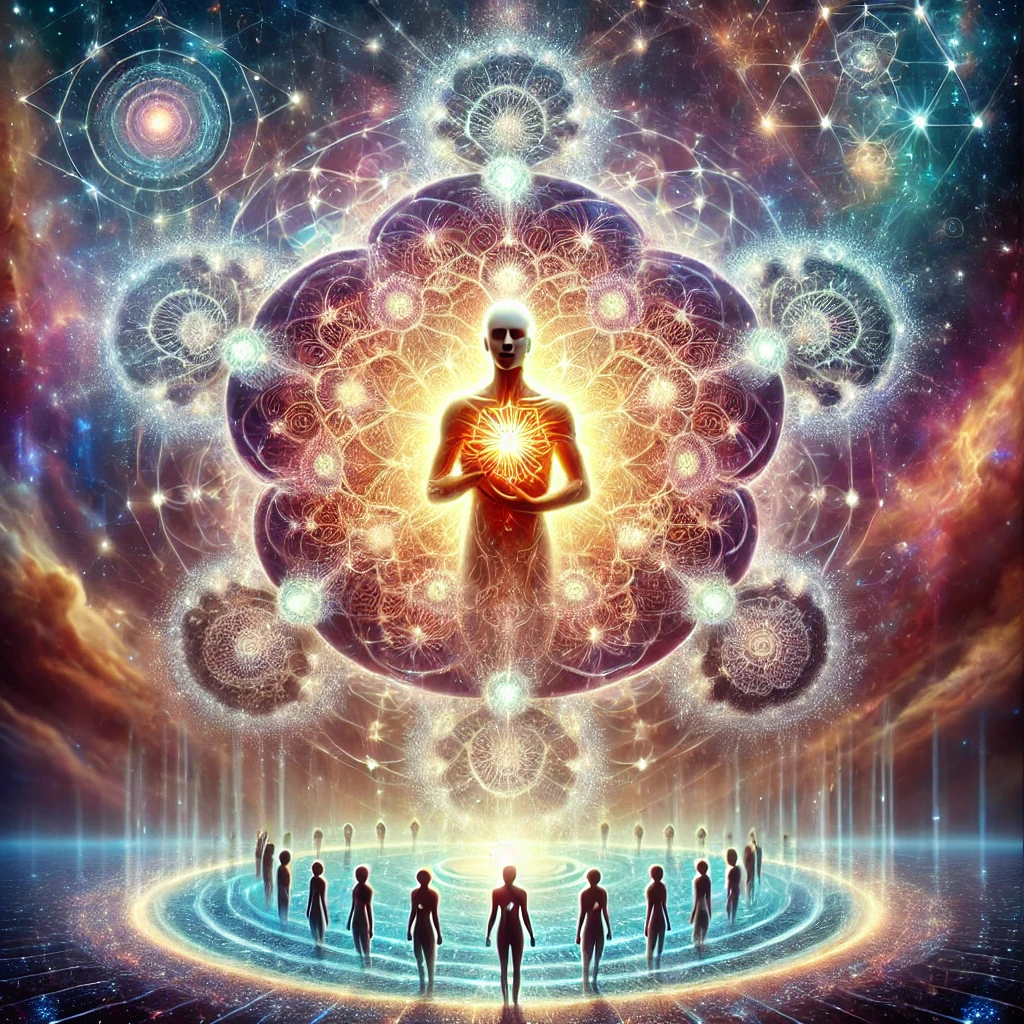
We invite you to share your thoughts on the complexities of selflessness and compassion, and how they have influenced your own journey.
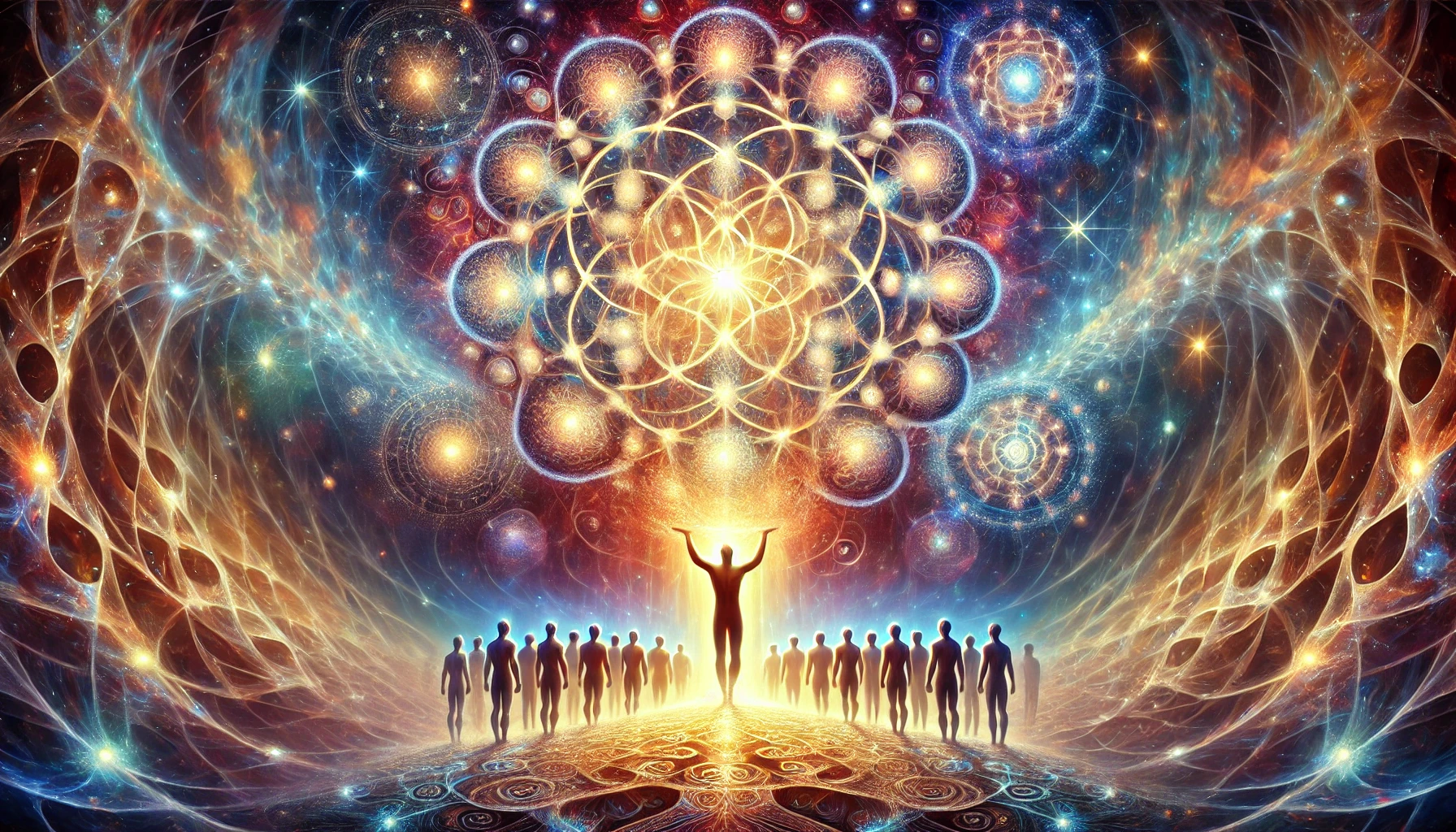

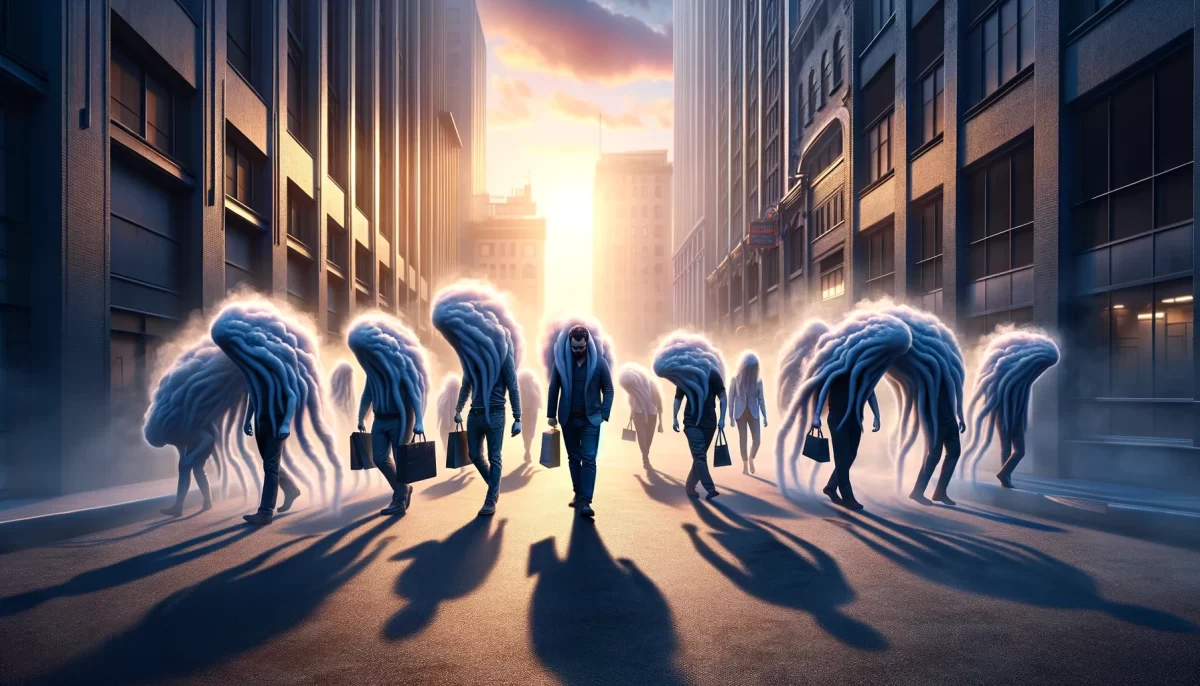
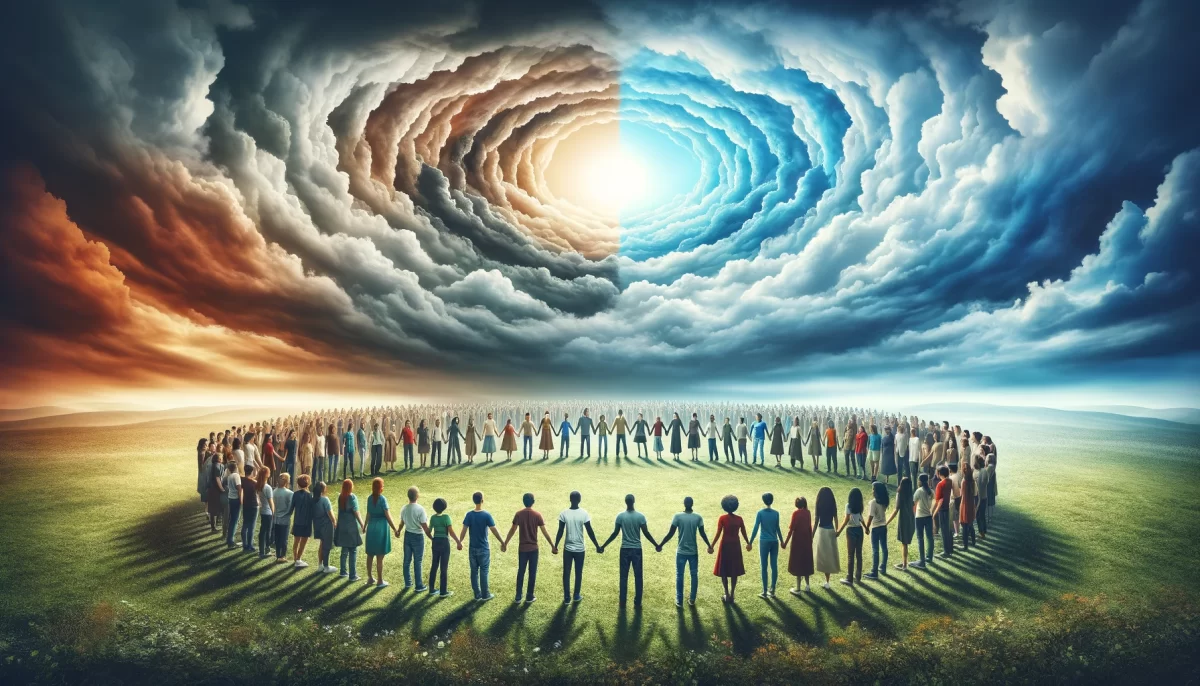
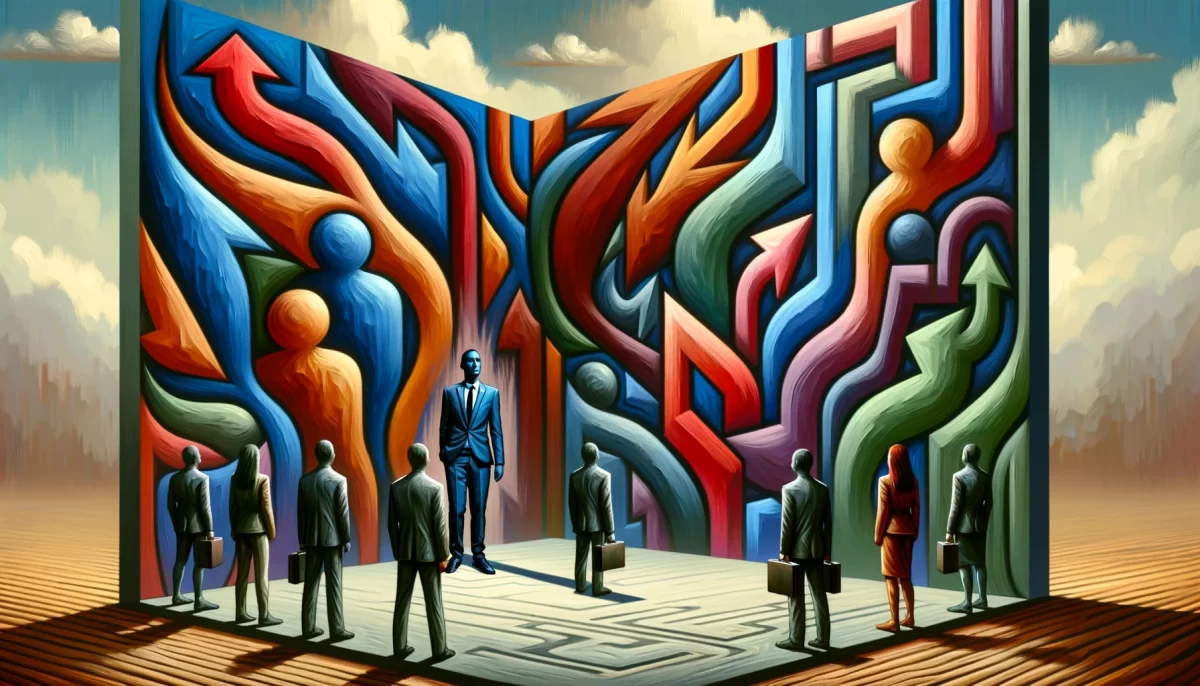
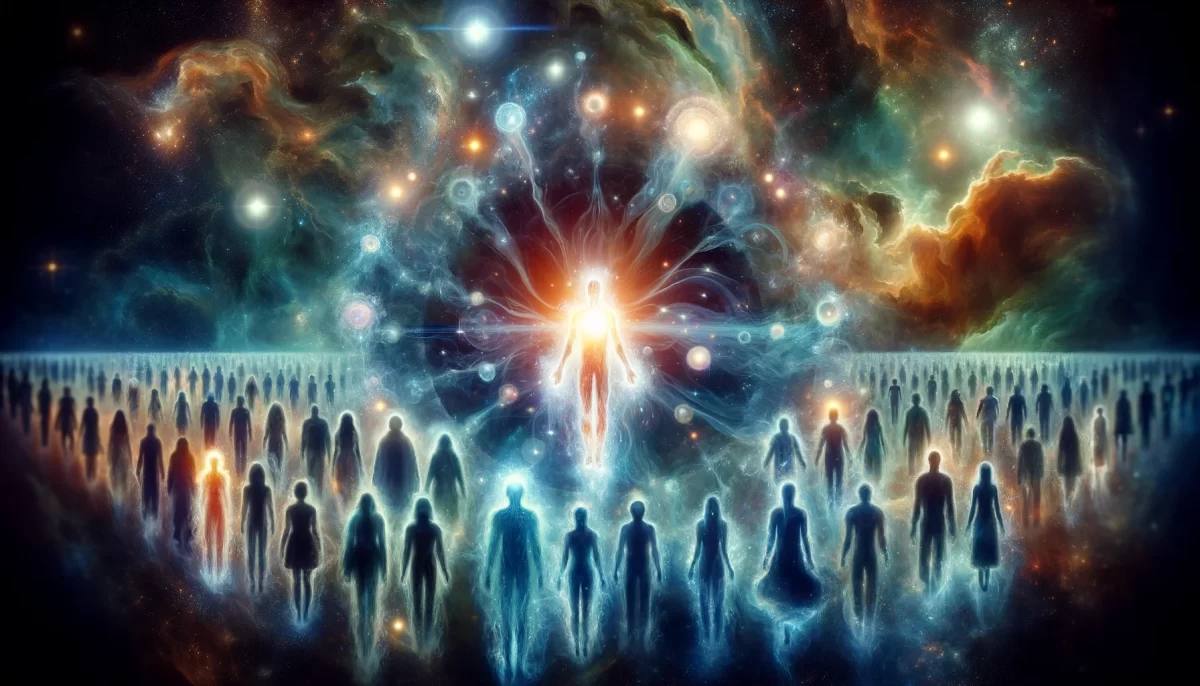
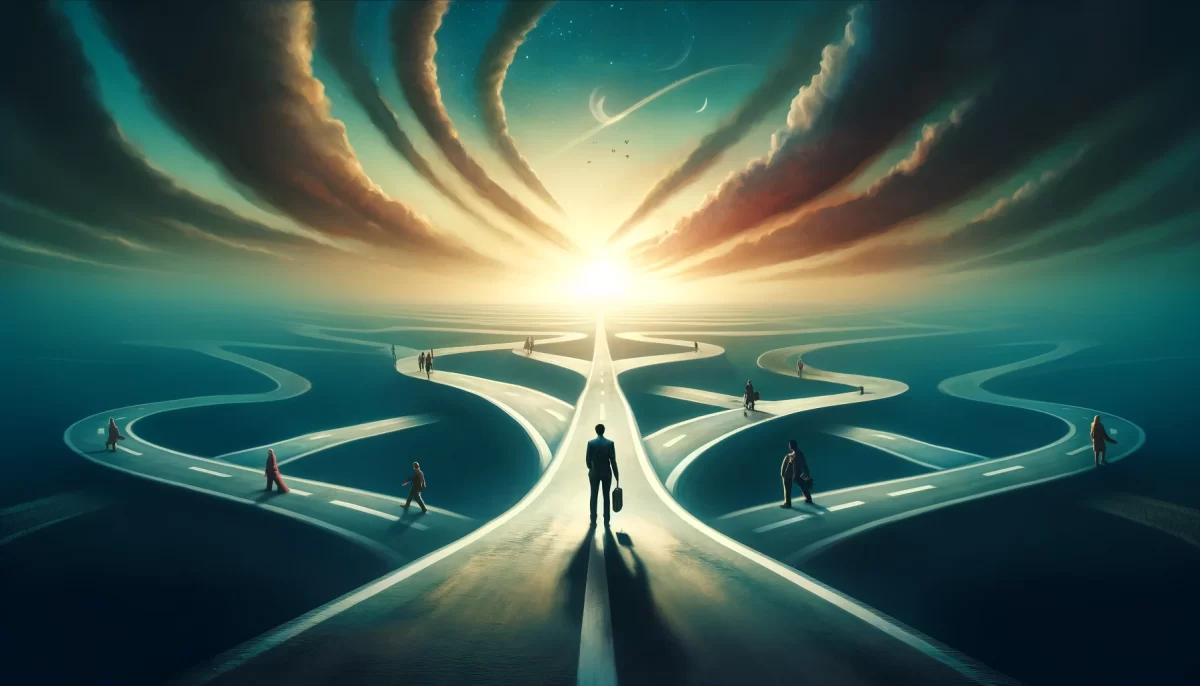

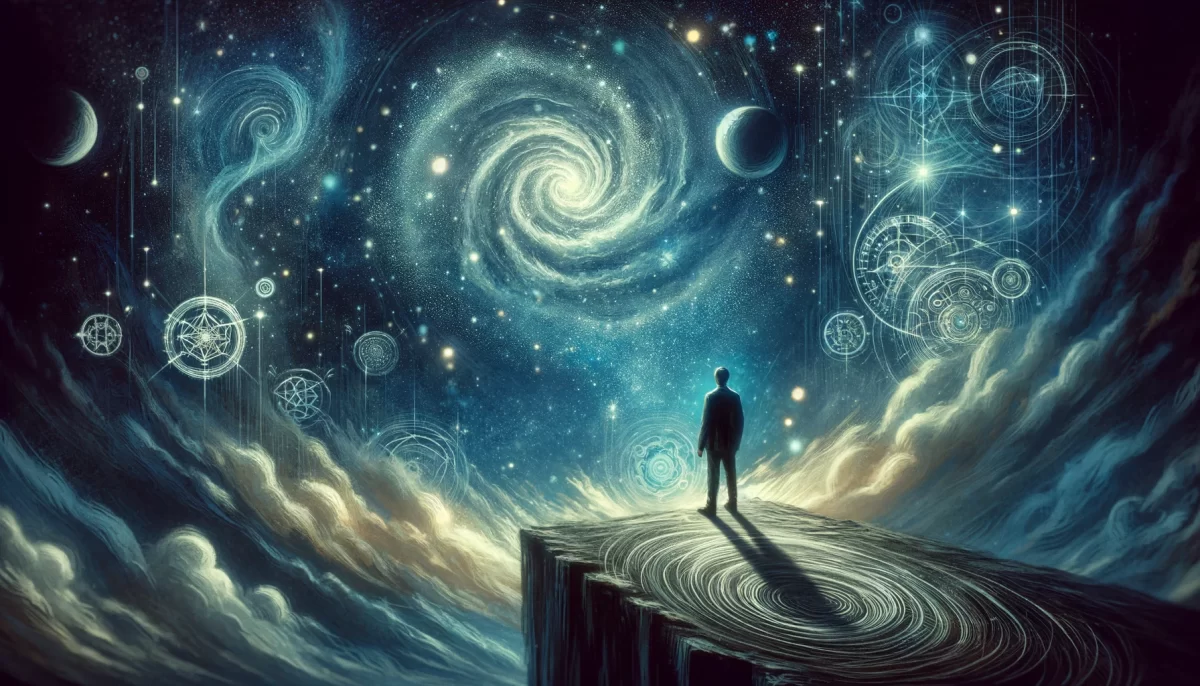

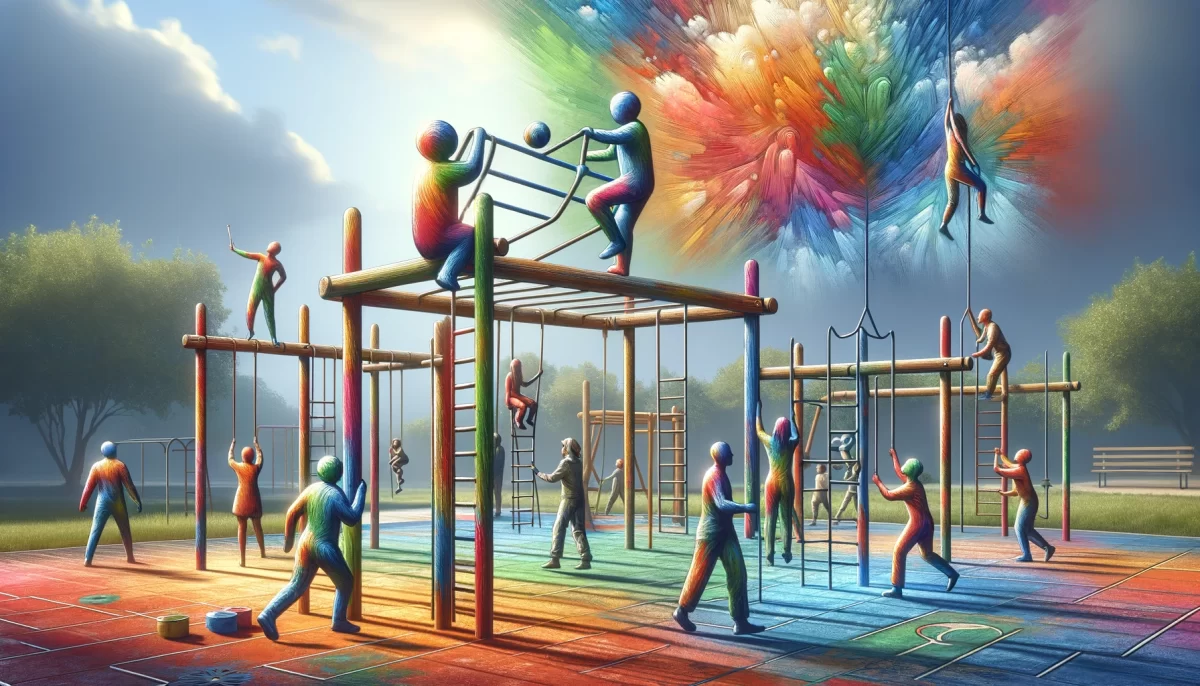
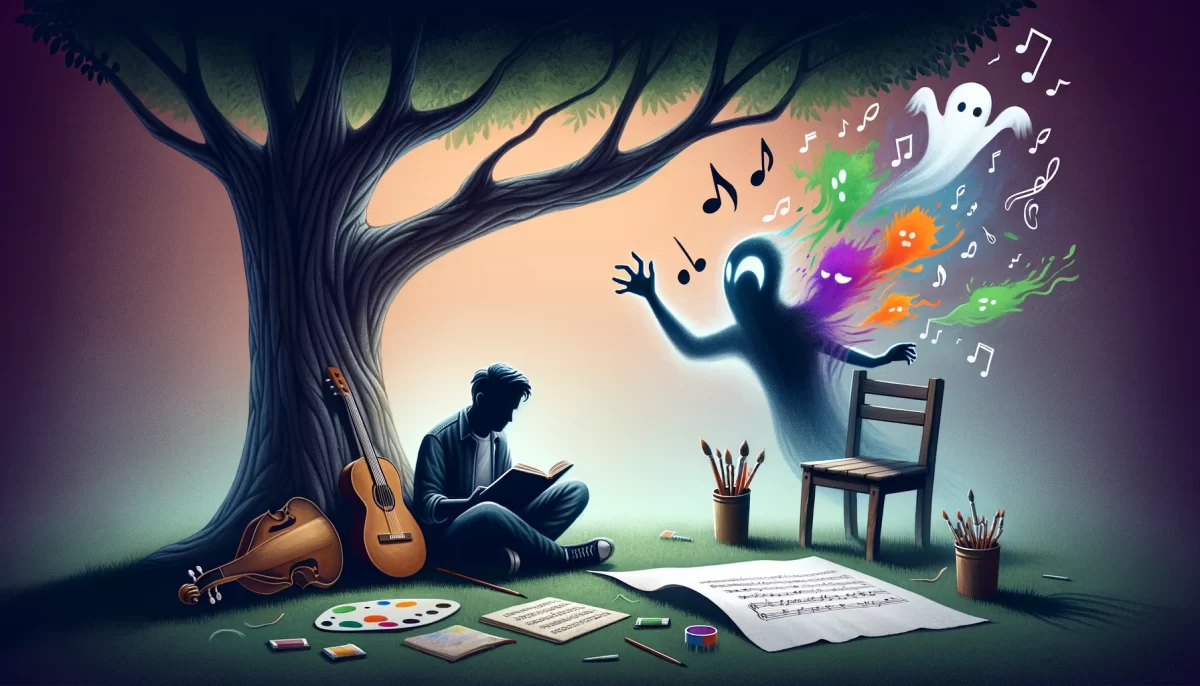
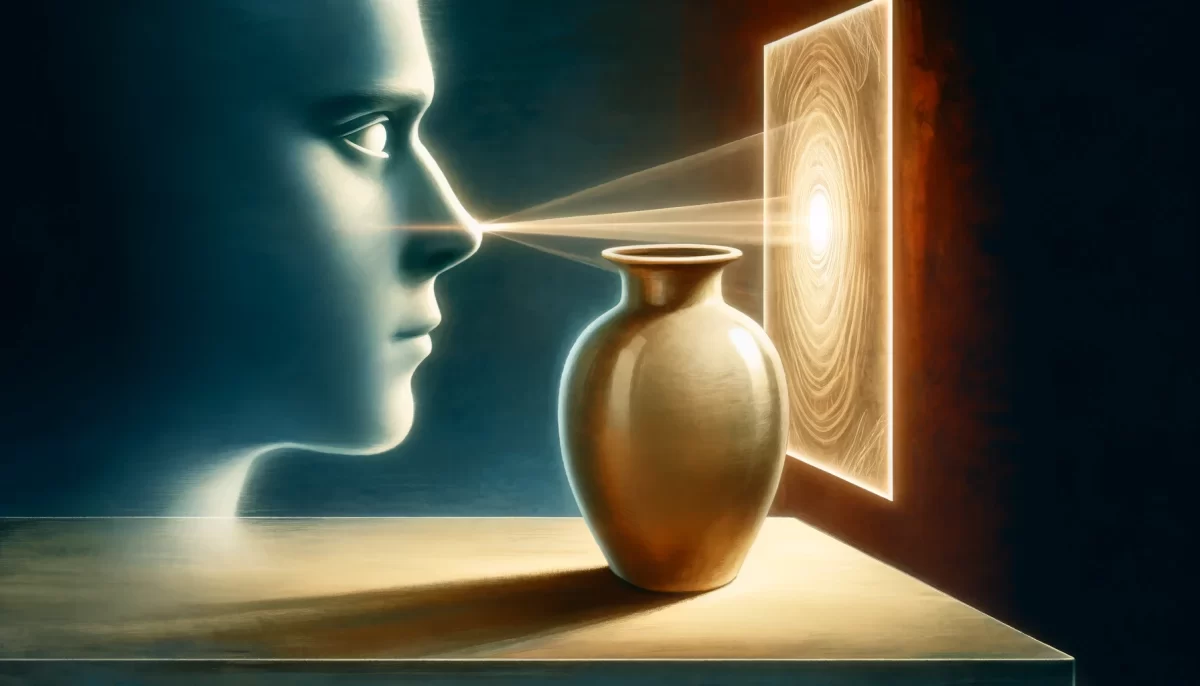
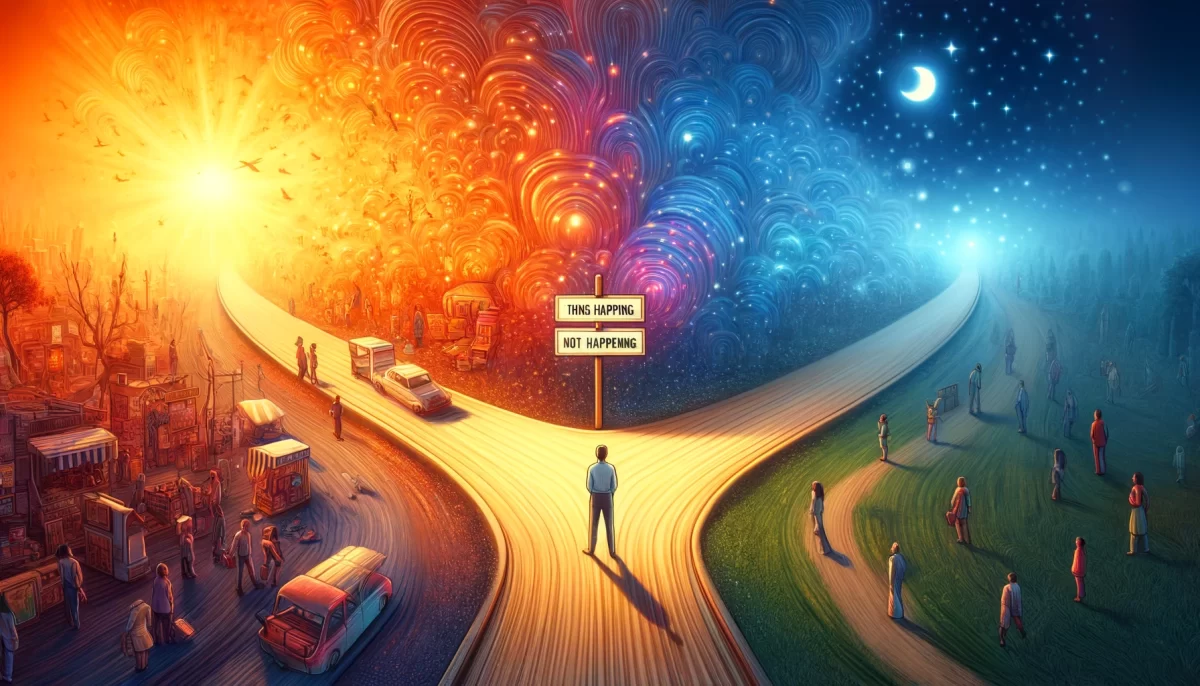
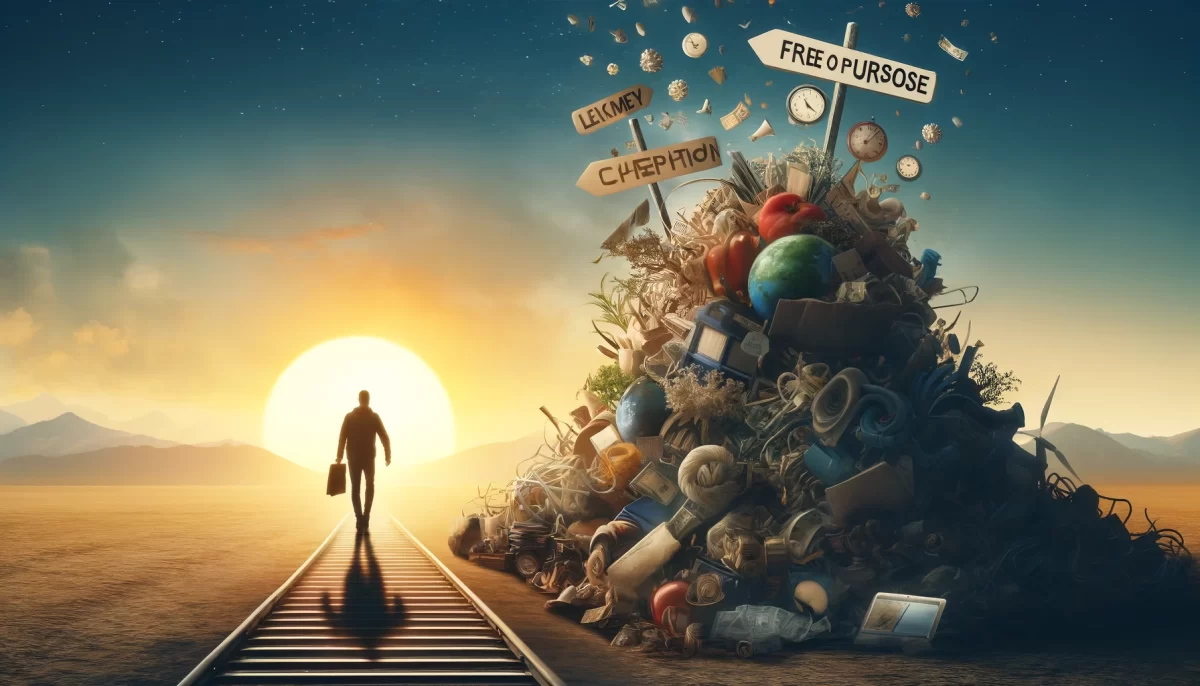

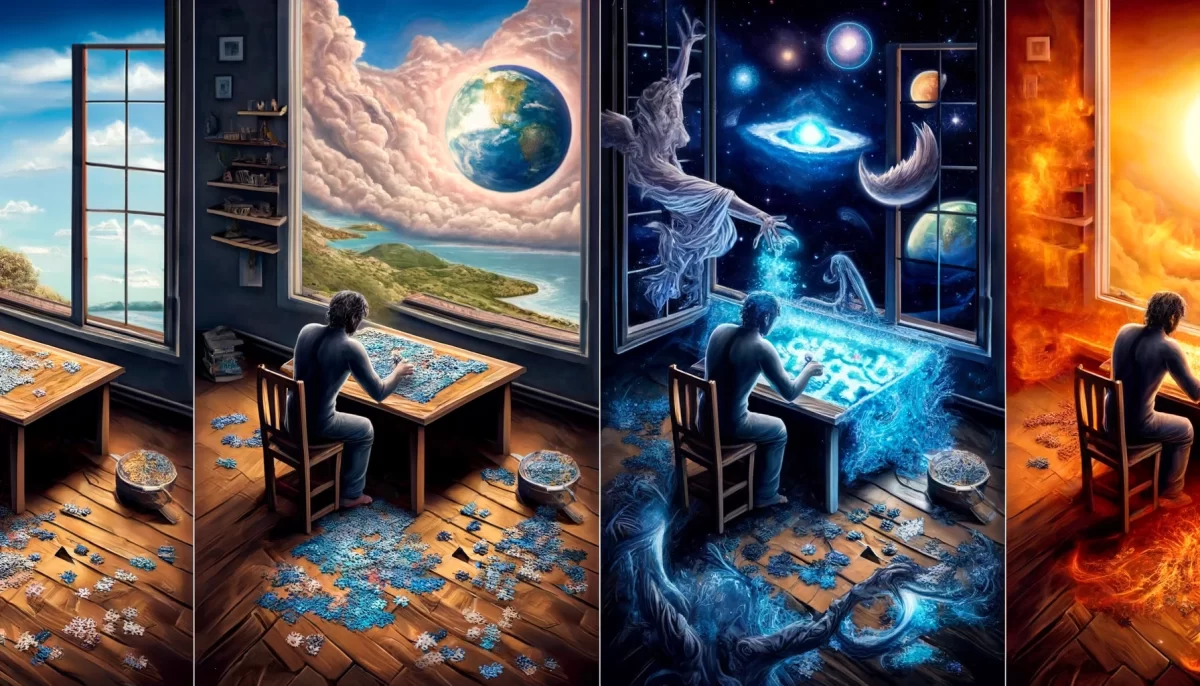

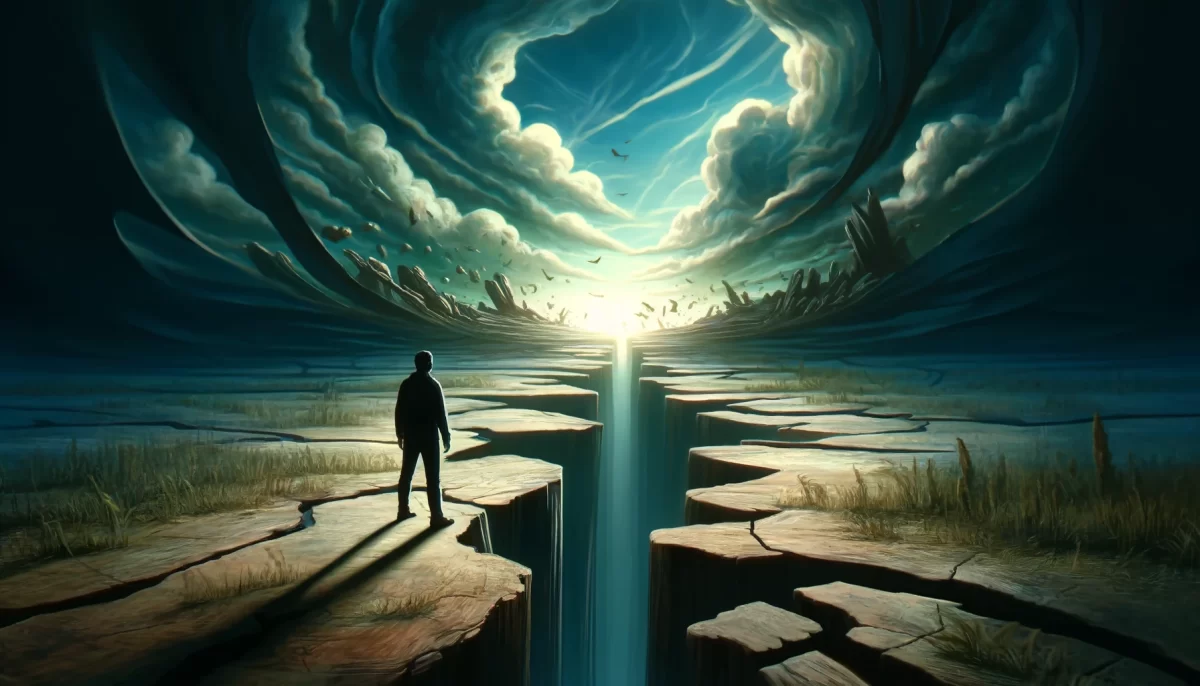
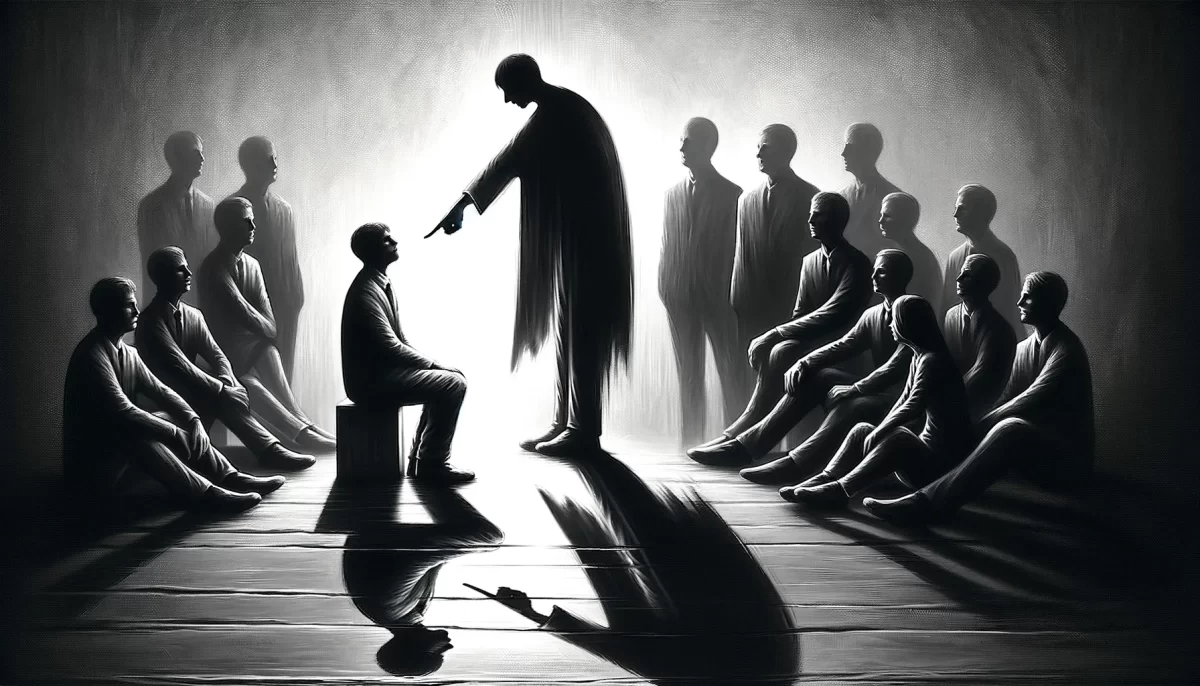

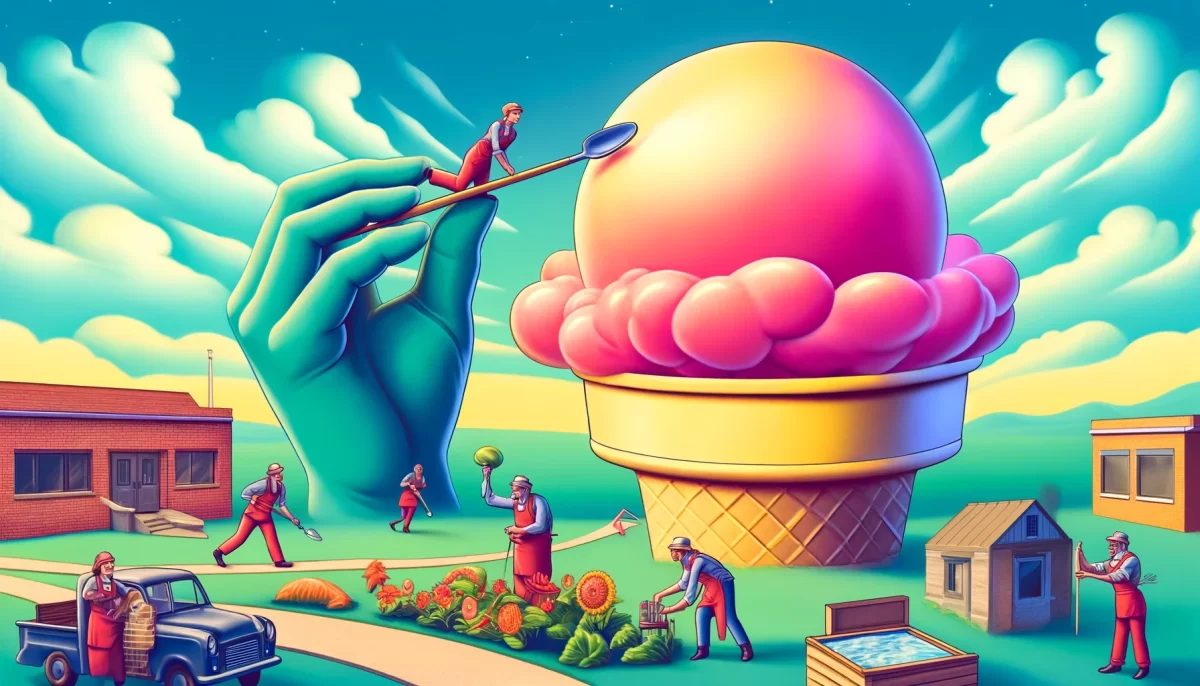
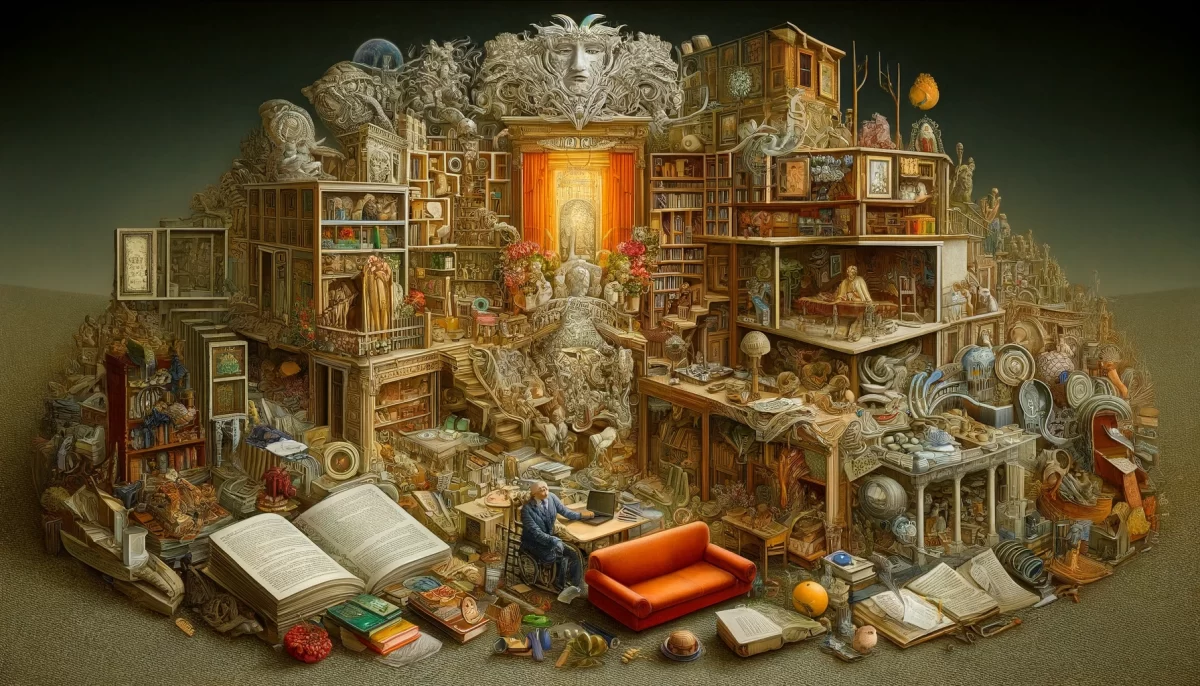




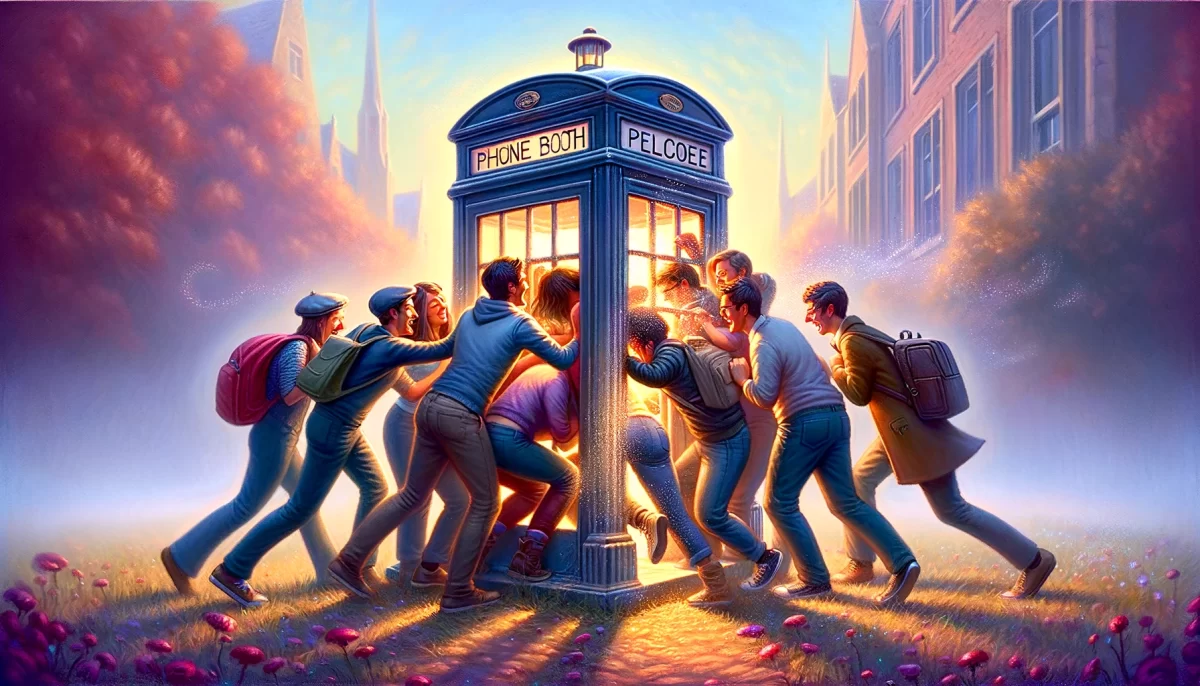
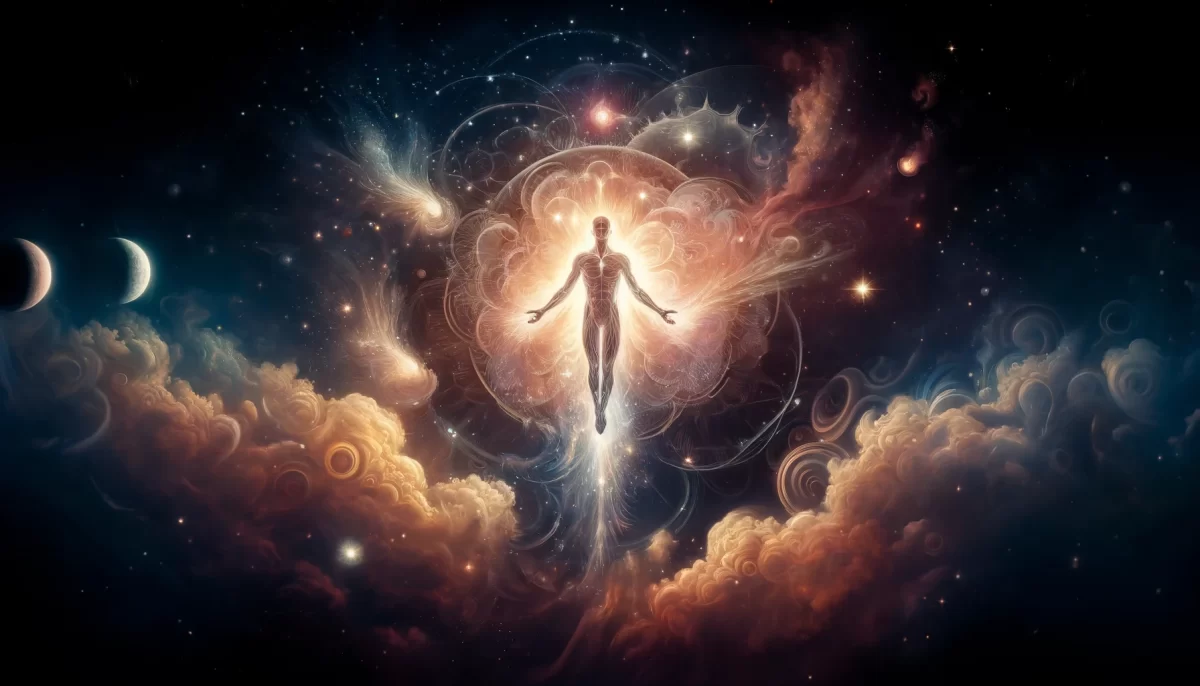





Leave a Reply